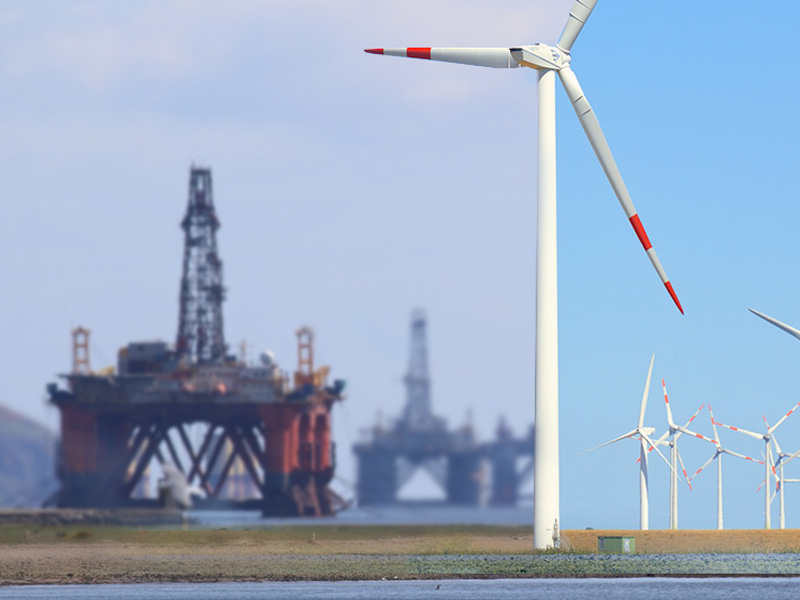What COP29 Failed to Deliver: Key Missed Opportunities
COP29 highlighted the urgency of climate action, but major opportunities were missed. Insufficient fossil fuel phase-out plans and inadequate financial commitments revealed significant gaps in global climate strategies.
Here’s what didn’t happen – and why it matters.
1. COP29 Missed Opportunities in Fossil Fuel Phase-Out
Although Brazil and the UAE presented ambitious Nationally Determined Contributions (NDCs), they sidestepped addressing fossil fuel subsidies.
These subsidies distort energy markets, making it harder for renewable energy to compete. Phasing them out, while investing in clean energy, is essential to meet the 1.5°C target. However, COP29 avoided providing a clear timeline or strategy.
Missed Opportunity: COP29 failed to outline a global fossil fuel phase-out – a topic critical to meeting the 1.5°C goal.

2. Climate Finance: A Critical COP29 Missed Opportunity
While nations pledged $300 billion, this amount falls short of the $1.3 trillion needed annually to meet climate goals. Inflation-adjusted, the increase is marginal.
Disbursement mechanisms remain unclear, leaving vulnerable nations in a precarious position.
Small island states like Papua New Guinea boycotted the summit, expressing frustration at unfulfilled promises from wealthier nations.
Missed Opportunity: A concrete roadmap for scaling climate finance to the necessary $1.3 trillion remains elusive, delaying essential support for nations already suffering from climate impacts.
3. Energy Targets: Limited Progress on Ambition
COP29 fell short of addressing the vital intersection between climate and biodiversity. While targets for clean energy transitions were set at COP28, no renewed ambition emerged this year.
Saudi Arabia’s lobbying efforts to protect its oil-dependent economy likely played a role in dampening progress. Protecting biodiversity is integral to climate action, yet comprehensive plans linking the two remain out of reach.
Missed Opportunity: COP29 missed the chance to establish a clear framework for advancing energy targets that integrate both climate and biodiversity solutions.
4. COP Reform: Breaking the Cycle
The structure of COP summits remains a hurdle. Negotiations compressed into 11 days result in deferred decisions.
COP meetings are often moving in circles, where major decisions are postponed for future summits.
Transparency is also an issue, with a lack of transparency and inclusivity. Deals often made behind closed doors or via “informal discussions”, such as the swift adoption of controversial text on finance without consensus.
Missed Opportunity: Calls for reforming COPs to promote faster, more inclusive, and actionable outcomes remain unanswered. Public-private platforms like the World Economic Forum might offer alternative models for collaboration.
Looking Ahead: What Needs to Change
The key to unlocking progress lies in addressing these gaps head-on:
- Phasing out fossil fuels: COP30 must focus on a timeline for eliminating subsidies and scaling up renewables.
- Scaling climate finance: A transparent roadmap toward $1.3 trillion annually is essential for rebuilding trust with vulnerable nations.
- Meeting energy targets: Developing tangible plans for meeting the very ambitious targets set at COP28.
- Reforming COPs: Ensuring that negotiations result in actionable, transparent outcomes will be critical for rebuilding faith in the process.
To conclude
COP29 showcased minimal progress, the lack of tangible outcomes shows need for systemic changes.
Climate change demands more than promises; it requires actionable commitments and a willingness to challenge the status quo.
As the world looks to COP30, the question remains: will these missed opportunities finally be addressed, or will history continue to repeat itself?
You can read more about what did happen at COP29 here for the most important bits.
Alternatively, for all the updates you can see updates via the UNFCCC themselves: https://unfccc.int/cop29/updates-archive